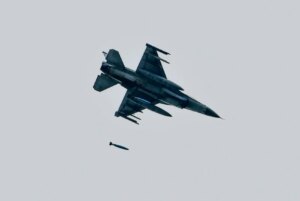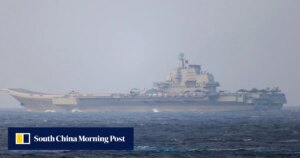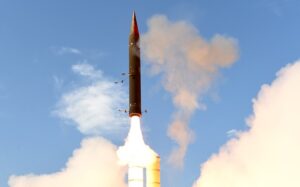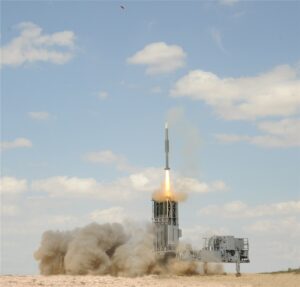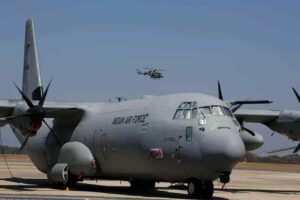尼日利亚获美国批准3.46亿美元精确制导武器采购,增强反恐实力
快速阅读: 美国批准向尼日利亚出售价值3.46亿美元的精确制导武器,包括5000枚APKWS II火箭、1002枚MK-82炸弹及配套组件,旨在提升尼日利亚空军打击恐怖主义和海上犯罪的能力,强化美非安全合作。
The package includes 1,002 MK-82 general-purpose 500 lb bombs, 1,002 MXU-650 Air Foil Groups for the 500 lb Paveway II GBU-12, 515 MXU-1006 Air Foil Groups for the 250 lb Paveway II GBU-58, 1,517 MAU-169 or MAU-209 computer control groups for Paveway II variants, and 1,002 FMU-152 joint programmable fuzes. The most prominent component, however, is the delivery of 5,000 Advanced Precision Kill Weapon System II (APKWS II) all-up rounds, 70 mm rockets upgraded with WGU-59/B guidance sections, high-explosive warheads, and MK66-4 rocket motors. Supporting items include joint programmable fuzes, bomb components, practice rockets, integration tools, and logistical assistance. The principal contractors are RTX Missiles and Defense, Lockheed Martin Corporation, and BAE Systems.
Operationally, Nigeria’s pursuit of such munitions reflects a decade-long modernization effort centered on precision-strike platforms. The Nigerian Air Force (NAF) previously integrated similar weapons with the 12
A-29 Super Tucano light attack aircraft
acquired in 2017, which were delivered in 2021 and deployed for counter-insurgency missions in the northeast. These aircraft, equipped with electro-optical targeting pods, have provided the ability to laser-designate and engage insurgent positions with GBU-12, GBU-58, and APKWS munitions. The NAF’s gradual expansion of precision-guided inventories, augmented in 2022 by an approved sale of 2,000 APKWSs alongside pending AH-1Z Viper attack helicopters, demonstrates a layered approach to close air support and counterterrorism operations.
Compared to unguided munitions, APKWS II offers a cost-effective precision capability, allowing standard 70 mm rockets to strike point targets with minimal collateral damage, similar in concept to laser-guided rocket systems used by U.S. and allied forces in Afghanistan and Iraq. In parallel, the Paveway II series, with its modular guidance kits, remains a globally proven solution for both light and heavy strike platforms. While regional counterparts rely heavily on unguided munitions or smaller stocks of smart weapons, Nigeria’s growing arsenal of laser-guided systems positions it to conduct more surgical air campaigns, reducing unintended damage while increasing mission effectiveness.
Strategically, the acquisition reinforces Nigeria’s role as a key U.S. partner in West Africa’s security landscape. By bolstering air-to-ground precision strike capacity, Abuja strengthens its deterrence posture against Boko Haram, Islamic State West Africa Province (ISWAP), and maritime criminal networks in the Gulf of Guinea. On a geopolitical level, the sale underscores Washington’s intent to maintain influence in a region where Chinese and Russian defense exports have been expanding. Militarily, the integration of precision munitions across Nigeria’s fixed-wing and future rotary-wing assets will improve joint operations and enable faster, more decisive engagements in both counter-insurgency and maritime interdiction scenarios.
The $346 million budget reflects the upper estimate for the proposed package, with the final cost dependent on Nigeria’s confirmed quantities and contractual negotiations. While no offset agreements have been disclosed, the deal involves some of the United States’ leading defense contractors, ensuring sustained support, training, and integration expertise. This follows a pattern of prior U.S.-Nigeria defense agreements, including the Super Tucano program, which combined hardware delivery with extensive pilot and maintenance training, creating an operational framework for future high-tech weapons integration.
This proposed sale signals a pivotal moment for Nigeria’s airpower trajectory. It represents not just an influx of advanced munitions, but the consolidation of a precision-strike doctrine that aligns with modern counterterrorism strategies. With proven combat platforms already in service and new capabilities on the horizon, Nigeria is positioning itself to conduct faster, more accurate, and more decisive operations, shaping the security dynamics of both West Africa’s battlefields and its strategic waterways.
(以上内容均由Ai生成)


